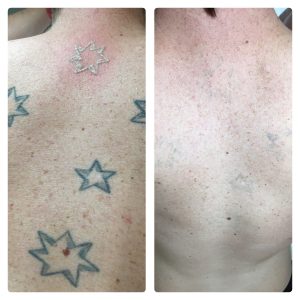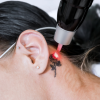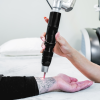Last Updated on August 22, 2025
A large portion of the population has tattoos, but workplace prejudice has not disappeared. Roles involving direct client interaction amplify the impact of first impressions.
Employers aren’t just looking for qualifications or experience, but also the “cultural” fit and image of that workplace. In most Australian states, visible tattoos are not covered by anti-discrimination or equal opportunity laws. This means that an employer is within the law to not offer employment based on someone having tattoos.
According to recent tattoo statistics Australia, this remains a growing concern as more people with visible tattoos enter the workforce and face potential hiring bias.
Some companies have workplace policies that allow them to refuse employment to people with visible tattoos. If such a policy exists and an employee later gets a visible tattoo, the company may legally terminate their employment. This is why more Australians have been actively searching for “Tattoo removal near me” to protect their career prospects, maintain professional opportunities, and avoid workplace conflicts over appearance.
Renude Laser is here to help by offering safe and effective tattoo removal treatments tailored to individual needs.
Employers May Still Judge Job Applicants by Their Tattoos

But in times when the job market is shaky, people with tattoos find it even harder to get hired, prompting them to reconsider their body art.
According to The Patient’s Guide, a website comprised of 25 niche publications dedicated to skin care, the need for Cold Laser therapy has increased 32 percent over the past year, with many citing employment as a main reason for the treatment.
In Osaka, Japan, the mayor launched a campaign against government employees with tattoos. City staff were required to disclose whether they had body art after reports surfaced that an employee’s tattoos had frightened kids at a welfare center.
“If they want to have tattoos,” Hashimoto said, “they should quit working for the city and go to the private sector.”
In the United States, one non-profit company even began instructing its participants on how to conceal tattoos with makeup. The move came after many candidates were repeatedly turned away from jobs because of their visible tattoos.
Even in the army, strict tattoo rules apply. Under the ADF tattoo policy (Australian Defence Force), tattoos that are visible on the hands, face, scalp, ears, and neck are prohibited. For those planning to enlist in the navy, tattoos on the hands are allowed, but the same restrictions apply to the face, scalp, ears, and neck.
Clean-cut Appearance Gets the Job
Despite the widespread prevalence of workers with these adornments, most employers have no formal policies toward tattoos or piercings. Yet most HR managers also concede that, all things being equal, they will hire the more clean-cut employee. In fact, piercings (37 percent) are the top physical attribute that may limit an employee’s career potential, according to CareerBuilder.com, followed by bad breath (34 percent) and visible tattoos (31 percent).
For many women entering the workforce, any thought that their careers may be hindered by a butterfly tattoo seems laughable. Today’s young professionals view these enhancements as an accessory or extension of their personalities.
At the same time, young employees also realize that in today’s precarious job market, they don’t want to give an employer any reason to reject them. As one HR director says, “You won’t get fired for having a visible tattoo, but it likely means you won’t get hired.”
Tattoo Removal as a Professional Advantage
For professionals in healthcare, customer service, education, or corporate environments, visible tattoos can sometimes create barriers to advancement. Tattoo removal, or even lightening tattoos, becomes a strategic decision. Fading tattoos can help job seekers present themselves with greater flexibility, aligning personal expression with career opportunities.
Low-Level Laser Therapy (LLLT) helps the body heal naturally after tattoo removal by:
- Calms irritated tissue and promotes faster skin recovery.
- Improves oxygen and nutrient delivery to the treated area
- Stimulates lymphatic drainage and supports the body’s detox process to clear fragmented ink particles
- Accelerates cell regeneration for healthier skin post-treatment.
This support means more efficient tattoo fading and an overall healthier outcome. Approaching tattoo removal with your career and wellness in mind transforms it into a step toward new opportunities, not just a way to erase old ones.
If you feel your tattoo is holding you back in the employment sector or making you feel uncomfortable, call us for a complimentary consultation. We will happily discuss your requirements, whether for a partial or full removal of a tattoo.
Renude Laser Clinic offers the most advanced laser tattoo removal Sydney, where we help you achieve faster tattoo clearance rates with less discomfort and greater healing. ReLove the skin you’re in.
Frequently Asked Questions
What jobs won’t allow tattoos?
Tattoos in the workplace may be restricted in fields with strict appearance rules. The military, healthcare, luxury hospitality, corporate roles, and some schools have policies against visible tattoos, especially in customer-facing positions.
Every workplace may handle tattoos differently. These guidelines are general and might not match the policies of particular organizations.
Do tattoos affect acting careers?
Yes, tattoos can affect acting opportunities. In film and TV, visible tattoos may limit casting, especially for period roles, and often require makeup or CGI to conceal. While many well-known celebrity tattoos have become iconic, they are usually hidden or digitally removed when a role demands a clean look. Overall, tattoos don’t stop acting opportunities, but they can restrict versatility unless covered.
Do tattoos hurt more if skinny?
Yes. People with less body fat and muscle often feel more pain during tattooing because there is less cushioning between the skin, nerves, and bone. Pain tolerance still varies by person, but body composition plays a clear role.












